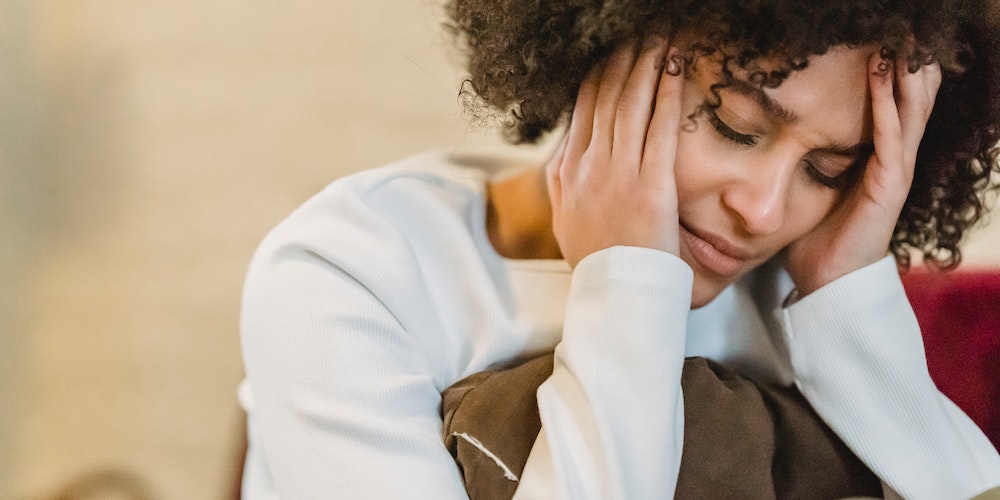In this article, you’ll learn about the questions to ask yourself when doubting a relationship. If this interests you, then keep reading!

Introduction
In every relationship, doubts and uncertainties may arise at some point. It’s important to address these doubts and determine whether they are temporary concerns or signs of deeper issues.
This article will explore essential questions to ask yourself when you find yourself doubting a relationship.
By reflecting on these questions and seeking honest answers, you can gain clarity and make informed decisions about the future of your relationship.
Questions to Ask Yourself When Doubting a Relationship

Here are some questions to ask yourself when doubting a relationship.
1. What Are My Core Values and Do They Align?
Understanding your core values is crucial in any relationship. Reflect on what matters most to you in life, such as honesty, trust, family, career, or personal growth.
Evaluate whether your partner shares similar values or if there are significant disparities. Misalignment in core values can lead to conflicts and dissatisfaction in the long run.
2. Am I Communicating Effectively?
Communication is the foundation of a healthy relationship. Assess how effectively you and your partner communicate with each other.
Are there open and honest discussions? Do you feel heard and understood? Evaluate if there are any communication barriers or patterns of miscommunication that contribute to your doubts.
3. Are My Needs Being Met?
Consider your emotional, physical, and intellectual needs within the relationship. Are you receiving the love, support, and companionship you desire?
Assess whether your partner is attentive and responsive to your needs. Understanding your needs and evaluating if they are being fulfilled is essential for relationship satisfaction.
4. Do We Share Common Interests and Goals?
Shared interests and goals can strengthen a relationship. Reflect on whether you and your partner have common hobbies, activities, or long-term aspirations.
Discussing and pursuing these interests together can foster a deeper connection and a sense of shared purpose.
5. How Do We Handle Conflict?
Conflict is inevitable in any relationship, but it’s how you handle it that matters. Evaluate how you and your partner manage disagreements and resolve conflicts.
Healthy communication, compromise, and respect are vital in navigating challenging situations. Assess whether conflicts are resolved constructively or if they escalate and damage the relationship.
6. Is There Mutual Trust and Respect?
Trust and respect form the foundation of a strong and lasting relationship. Ask yourself if you trust your partner wholeheartedly and if they trust you in return.
Evaluate if respect is consistently demonstrated in your interactions. Trust and respect are essential for a healthy partnership.
7. How Do I Feel in the Relationship?
Take a moment to reflect on your emotions within the relationship. Are you generally happy, fulfilled, and content?
Or do you often feel anxious, unhappy, or uncertain? Pay attention to your overall emotional well-being and evaluate whether the relationship contributes positively to your life.
8. Am I Willing to Put in the Effort?
Relationships require effort and commitment from both partners. Consider if you are willing to invest the necessary time, energy, and effort into nurturing the relationship.
Assess whether you are both willing to work through challenges and grow together.
9. Have We Discussed Future Plans?
Discussing future plans is crucial for long-term compatibility. Evaluate whether you and your partner have discussed your visions for the future.
Are your aspirations aligned, or do you have conflicting ideas about major life decisions? Understanding each other’s expectations and goals is important for relationship sustainability.
10. Do I Feel Supported and Valued?
Feeling supported and valued by your partner is essential for a healthy relationship. Reflect on whether your partner uplifts and encourages you.
Assess if they appreciate your contributions and make you feel valued as an individual. A supportive and validating partner can help alleviate doubts and strengthen your bond.
11. Have I Explored My Feelings with My Partner?
Open and honest communication with your partner is crucial when doubts arise. Have you expressed your concerns and doubts to your partner?
Share your thoughts and feelings with them in a calm and non-confrontational manner. Their response and willingness to address your concerns can provide valuable insights into the strength of your relationship.
12. Am I Willing to Seek Professional Help?
Sometimes, doubts in a relationship can become overwhelming, and seeking professional help can be beneficial.
If your doubts persist or if you’re unable to find a resolution on your own, consider seeking guidance from a relationship therapist or counselor.
They can offer unbiased advice and strategies to help you navigate your doubts.
13. What Do Close Friends or Family Members Think?
Gaining perspective from trusted friends or family members can provide valuable insights. Share your concerns with those close to you and ask for their input.
Sometimes, their external observations can shed light on aspects of the relationship that you might have overlooked. However, remember that ultimately, the decision is yours to make.
14. Have I Given the Relationship Enough Time?
Relationships evolve over time, and doubts can surface during different phases. Consider whether you’ve given the relationship enough time to develop and grow.
Rushing to conclusions prematurely may prevent you from experiencing the full potential of the partnership.
Patience and perseverance can sometimes help address doubts naturally.
15. Am I Taking Care of Myself?
Self-care is essential when facing doubts in a relationship. Take the time to focus on your physical and emotional well-being.
Engage in activities that bring joy, practice self-reflection, and prioritize your needs.
Taking care of yourself will provide clarity and empower you to make decisions that align with your happiness.
Conclusion
Doubting a relationship is a natural part of the human experience, but it’s important to address those doubts openly and honestly. By asking yourself these essential questions and reflecting on your answers, you can gain insights into the strengths and weaknesses of your relationship. Remember, self-reflection and effective communication are key in navigating doubts and making informed decisions about the future of your partnership.
Frequently Asked Questions
Q1: How do I know if my doubts are valid concerns or just temporary insecurities?
A1: Validating your doubts can be challenging. Take the time to reflect on your concerns and evaluate if they are based on real issues or temporary insecurities. Consider seeking professional guidance if needed.
Q2: Should I end the relationship if I have doubts?
A2: Doubts alone don’t necessarily mean the relationship should end. Honest communication and self-reflection can help you determine the best course of action. Consider seeking couples counseling to address your concerns together.
Q3: What if my partner and I have different core values?
A3: Different core values can lead to conflicts and challenges in a relationship. However, open and respectful communication can help bridge the gap and find compromises that work for both partners.
Q4: How can I improve communication with my partner?
A4: Improving communication takes effort from both partners. Practice active listening, express your thoughts and feelings openly, and seek to understand each other’s perspectives. Consider couples therapy to enhance your communication skills.
Q5: Is it normal to have doubts in a long-term relationship?
A5: Doubts can arise in any relationship, including long-term ones. It’s important to address these doubts and work through them together. Open and honest communication can help strengthen the bond.



